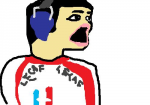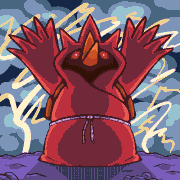|
eSports Chaebol posted:Does even Zenz claim over 100,000 Uighurs have been permanently disappeared? Is this in response to anything in particular?
|
|
|
|

|
| # ? Apr 23, 2024 10:51 |
|
Raenir Salazar posted:Is this in response to anything in particular? The comparison was to Sri Lanka: suppose the PRC simply killed everyone suspected of supporting East Turkestan independence to the tune of tens of thousands of people, at least, and succeeded in wiping out separatism altogether. If they then ended all the extra surveillance and detention camps and vocational programs would we really call it not a genocide then?
|
|
|
|
eSports Chaebol posted:The comparison was to Sri Lanka: suppose the PRC simply killed everyone suspected of supporting East Turkestan independence to the tune of tens of thousands of people, at least, and succeeded in wiping out separatism altogether. If they then ended all the extra surveillance and detention camps and vocational programs would we really call it not a genocide then? I imagine "it depends"; probably to what degree the killing of a lot of people has on their cultural identity or to disperse them from their population centers.
|
|
|
|
Conventionally, yes, genocide requires the special intent to systematically destroy a protected group (which can be demonstrated through massive slaughter of a substantial number of the group but, failing which, it is sufficient to demonstrate a systematic destruction of leaders of the identity, like intellectuals or nationalists; this latter addresses a Polish intelligentsia/Bangladeshi War of Independence situation) I've made this point before upthread, but this condition can be counterintuitively difficult to meet when adhoc ethnic violence is endemic. For example, Duško Sikirica etc. imprisoned ~2-3%+ of the entire Muslim population of Prijedor city in Bosnia in a concentration camp at Keraterm in inadequate conditions, on the basis of ethnic identity, and failed to protect a number of detainees from murder, rape/sexual assault, killings, beatings, torture, disappearances, etc. especially from Serbian militias, etc. and subsequently pled guility to crimes against humanity for persecution but not genocide. In particular, cited in the defendant's favour was that many acts were instead for personal gain (i.e., extortion or robbery) or revenge, and not eliminatory targeting of leaders, even if conducted by Serbian militias intruding into the camp to prey on vulnerable Bosniaks or Croats. This is obviously an extreme example; it rests heavily on Sikirica and his compatriots allegedly not knowing about the wider genocide of Bosnian Muslims and Croats in the region by higher Serb authorities, hence leaving their actions to be interpreted in isolation rather than as part of a cohesive programme of genocide. But this is plausible in the chaos of disintegrating Yugoslavia! You might notice that this jurisprudence would penalize regimes that have cohesive rule of law whilst not being very effective in an atmosphere of lawlessness and general chaos that characterize failed states (a particularly sharp point after the rise of ISIS) - but that would be a logical outcome of attaching a special horror to genocide as a crime of systematic intent or effect of organized states. So, anyway, China. quote:断代、断根、断联、断源一个不漏,彻底把'两面人'的根子铲干净、挖干净,誓与'两面人'斗争到底。 The particular problem for China is that its level of control is certainly uncontested, especially over the past decade following the 2014 Kunming knife attacks. When state capacity runs so deep - deep enough to intern what is certainly hundreds of thousands of people, if not a million, whilst maintaining an astoundingly intrusive level of surveillance and arbitrary repression on many more - it is hard to evade responsibility for any systematic outcomes. Descriptions of camp conditions are certainly harrowing, e.g.: quote:From the few people released from internment in 2018, researchers have collected detailed information about living conditions in the camps. Omir Bekali, a Kazakh interned in the northern city of Qaramay, described being locked up almost 24 hours a day with eight other men, sharing beds and a single toilet under the watch of cameras. Internees were rarely permitted to take baths, or even wash their hands and feet, the latter being ‘equated with Islamic ablution’ (Shih 2018) and therefore deemed ‘extremist’. Gulbahar Jelil, a Kazakhstani Uyghur interned in Ürümchi, described similar restrictions; the 30 women in her cell could shower only once a week, using one bar of soap divided into 30 pieces, and with two women showering together for one minute (Byler 2018a). Many former inmates describe camp food as poor quality, saying they were fed steamed buns or thin soup, and rarely given meat, and that food poisoning was common (Denyer 2018; Special Correspondent 2018). Gulbahar Jelil told of a starvation diet of 600 calories per day, and of how guards punished internees for speaking Uyghur by reducing their diet still further (Byler 2018a). The camps are reported to be badly overcrowded; in May 2018, a security official in Korla, a city just south of the Tianshan mountains, admitted that camps were so full that officials had begged police to stop bringing people in (The Economist 2018; see also Byler 2018a). This said, we do not know how systematic these conditions are. Incidents of torture or rape are bad but they are not genocidal; only the systematic torture of Uighur intellectuals (for example) would be genocidal. By successfully putting Uighur intellectuals and celebrities in camps, China has put itself in a position where it is responsible for their care! e.g., other countries in the region all also set out an acceptable/unacceptable Islam by other countries in the region and engage in state repression including torture and disappearances to enforce this - the immediate neighbours Tajikistan, Kyrgyzstan, and Uzbekistan all do so, with Tajikistan and Karimov-period Uzbekistan being notable, especially after the Taliban victory in the Afghan civil war in the late 1990s - but their repressions are not comparably thorough by a longshot. We do know the government of China is not cooperating with international observers in verifying conditions (e.g., the 2022 OHCHR commission was not able to do so). Given what we know how aborigine residential schools and concentration camps with an explicit mandate of assimilation and not very much funding to do so have typically turned out in the West, it does seem only too plausible that conditions are systematic. My own take is that China is still responsive to international pressure to improve conditions, to tighten adherence to the notional mission of re-education and deradicalization, and to discourage local camp administrators from pursuing their own ad-hoc agendas, so that pressure is helping mitigate what could very plausibly rapidly escalate into a genocide. We would only probably find out for real well after the dust settles years from now, by which it would be too late to reverse a successful genocide. Current conditions create a state of abject terror and repression, but that is still preferable to genocide. ronya fucked around with this message at 08:46 on Mar 27, 2024 |
|
|
|
ronya posted:
the Tajikistani government's treatment of the Pamiris is... not great, and worsening, but yeah, it's pretty hard to outdo China here
|
|
|
|
https://edition.cnn.com/2024/04/02/..._source=twitter Very large quake this morning. Several buildings down on the east coast. My wife was on the MRT this morning while it happened, the car stopped and she was able to get off and get on a bus to finish getting to work. Still aftershocks going on right now, literally as I type this.
|
|
|
|
This seems fairly important: Duterte has acknowledged the long-denied existence of a secret 2017 "gentlemen's agreement" deal with Xi to cease repairing the BRP Sierrra Madre. The tension between the West and Duterte was always Western opposition to his war on drugs (or, specifically, the ability of Philippine NGOs to mobilize Western pressure), so recent events may reinforce that. ronya fucked around with this message at 18:17 on Apr 14, 2024 |
|
|
|
So, every year, USINDOPACOM hosts a science & technology conference in Honolulu which typically brings in about 1700 attendees and presenters from across the US's allied spectrum and the MIC. It happened about a month ago. On day 2 in the main ballroom, there was a panel on Joint Intermediate Force Capabilities with a panel made up primarily of folks from the JIFCO. The guest panelist was MGEN Arvin Lagamon who is the Deputy Chief of Staff for Civil-Military Operations for the Philippines. For obvious reasons, panels and panelists are generally refrained from calling out China in specific terms during these open sessions. But I guess something changed because the JIFCO panel was basically 20 minutes of JIFC stuff and then 40 minutes of Lagamon calling out China including refutations of the Nine-Dash Line and claims over Taiwan. He had slides and all. It was kind of funny.
|
|
|
|
ronya posted:Conventionally, yes, genocide requires the special intent to systematically destroy a protected group You are obviusly informed, but I am surprised by this redefinition. Is not what is on the dictionary. If I find a system to kill every white human being in the planet, based on that definition.. is not a genocide because is not a protected group? what is a protected group?, why we need this definition. I apologice in advance, I think is better to ask than to remain ignorant.
|
|
|
|
Tei posted:You are obviusly informed, but I am surprised by this redefinition. Is not what is on the dictionary. I think "protected" was meant to mean "minority or marginalized" group within the context of the majority group of a particular nation doing the act; as that's usually the practical context in which it occurs. Very rarely can a minority group perform such an act against a more powerful group due to the logistical and practical efforts involve, but maybe the conquest of the New World counts? But looking at it entirely in a more modern or hypothetical context, if I supposed a hypothetical scenario where you were to develop a genetically engineered deadly virus to only target a specific ethnic group in order to wipe them out, regardless of in/out group relations to power, I think reasonable people would still agree that's genocide even if that group is the majority or most powerful group. If like the Elves in a setting like the Witcher develop some kind of magic curse to wipe out all the humans, even though humans are not only the majority and the group in power, and based off the TV show are currently oppressing the Elves, that would still be genocide for the Elves to do that yes regardless of whatever justification one could derive arguing that it is in self-defence at whatever point in time of the events of the show. Raenir Salazar fucked around with this message at 23:07 on Apr 14, 2024 |
|
|
|

|
| # ? Apr 23, 2024 10:51 |
|
Specifically, the groupings identified by the 1948 Convention on the Prevention and Punishment of the Crime of Genocide ("national, ethnic, racial or religious group"). This does not include political, economic, gender, etc. identities, as a point much agonized in the 1980s:quote:2 . The groups protected: (The killings in Burundi at least notionally maintained that they were not setting out to ethnically purge Hutus, who formed 85% of the population, but instead Ntare monarchists real or imagined; it's instructive to compare the contemporaneous Bangladesh genocide which similarly targeted Bangladeshi elites, but was conducted by the then-West Pakistan forces. The latter had a place to retreat to. Conversely the later Rwandan genocide would be pretty upfront on their intentions). In the 1990s the enthusiasm for expanding the definition of genocide, or elevating 'democide' to the same level, ebbed after Rwanda and Bosnia gently reminded people that undisguised unmitigated ethnic genocide can still suddenly emerge. If the open embrace of the intentional destruction of ethnic groups is to be held as the highest crime, it must have a greater odium on it than the concealed, obfuscated destruction of ethnic groups.
|
|
|












